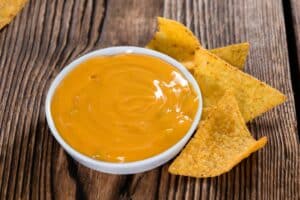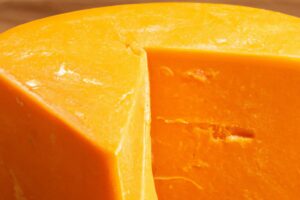Your intentions are good. You already know that oat bran is good for you and that it should be part of your healthy, low-cholesterol, high-fiber diet. But what are some good oat bran substitutes that are just as nutritious?
Nutritious Oat Bran Substitutes
1. Corn Bran
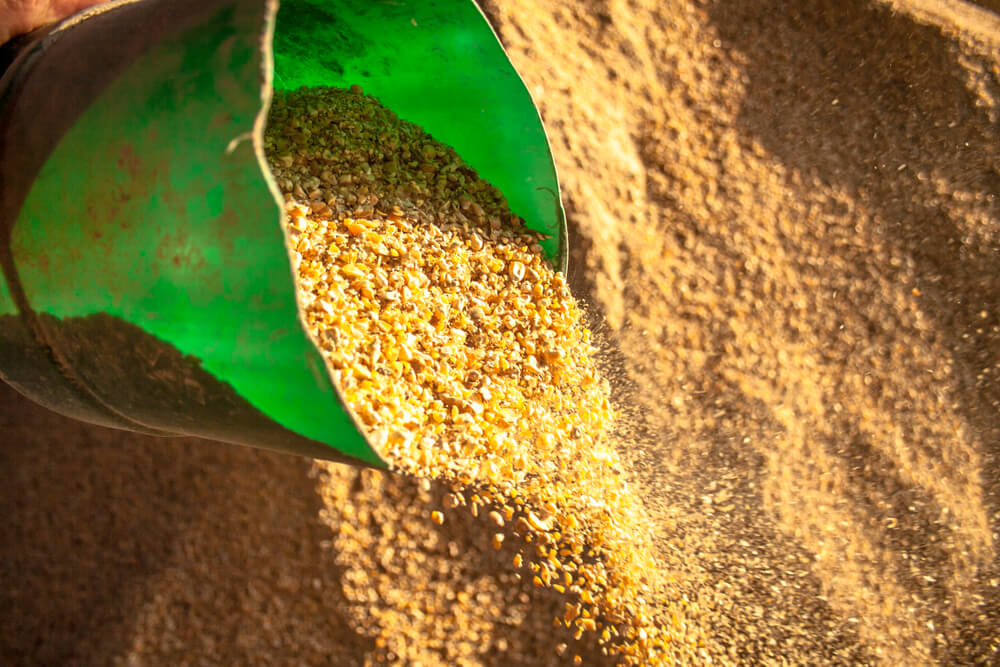
Corn bran, also called maize bran, is an excellent oat bran substitute. It is made from the tough exterior shell of the corn kernel, similar to how oat bran is the exterior of the oat groat. As an extremely fibrous food, corn bran delivers several important health benefits, in many cases to an even greater degree than oat bran.
For example, one cup of corn bran has 60 grams of fiber, or 158% of the recommended Daily Value, while the same amount of oat bran has 21 g, or 75% DV. Corn bran is also high in vitamins and minerals, especially iron, copper, and selenium.
There is scientific evidence suggesting that the consumption of corn bran may reduce the risk of chronic illness, including cardiovascular disease, obesity, diabetes, and a number of digestive disorders.
Maize bran can be used in much the same way as oat bran, including breakfast cereals, snack bars, cookies, and chips. However, it is significantly blander. This means, for example, that corn bran muffins do not have as much flavor as those made with oat bran.
You can swap oat for corn cup by cup. However, you will want to make adjustments in your recipes to account for the flavor changes.
2. Rice Bran
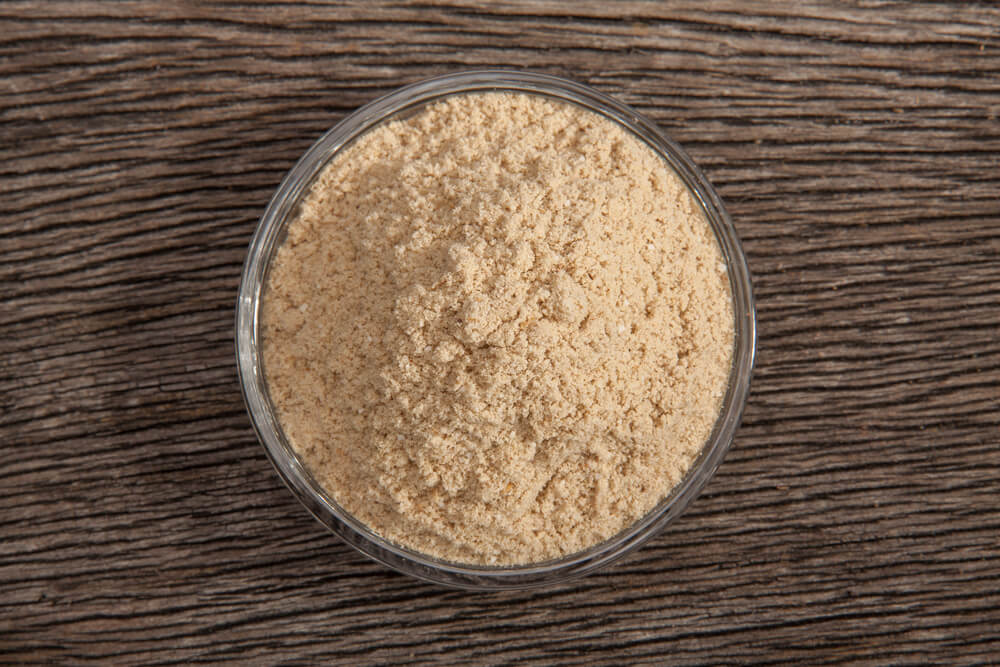
Rice bran is the outer husk of rice grain. It is rich in nutrients, especially zinc, potassium, iron, phosphorus, magnesium, manganese, and Vitamins B6 and E. It is also very high in fiber — one cup has 25 g, or 99% of the DV.
The flavor of rice bran is neutral, so it works well as an additive to baked goods like muffins and breads, breakfast cereals, snack foods, and smoothies.
Researchers have identified over 60 metabolites in rice bran that potentially provide health benefits. These compounds also appear to have anti-hypertensive, anti-microbial, and anti-inflammatory properties.
Try swapping rice bran cup-for-cup in your recipes to change up the flavor without losing nutritional benefits.
3. Wheat Bran
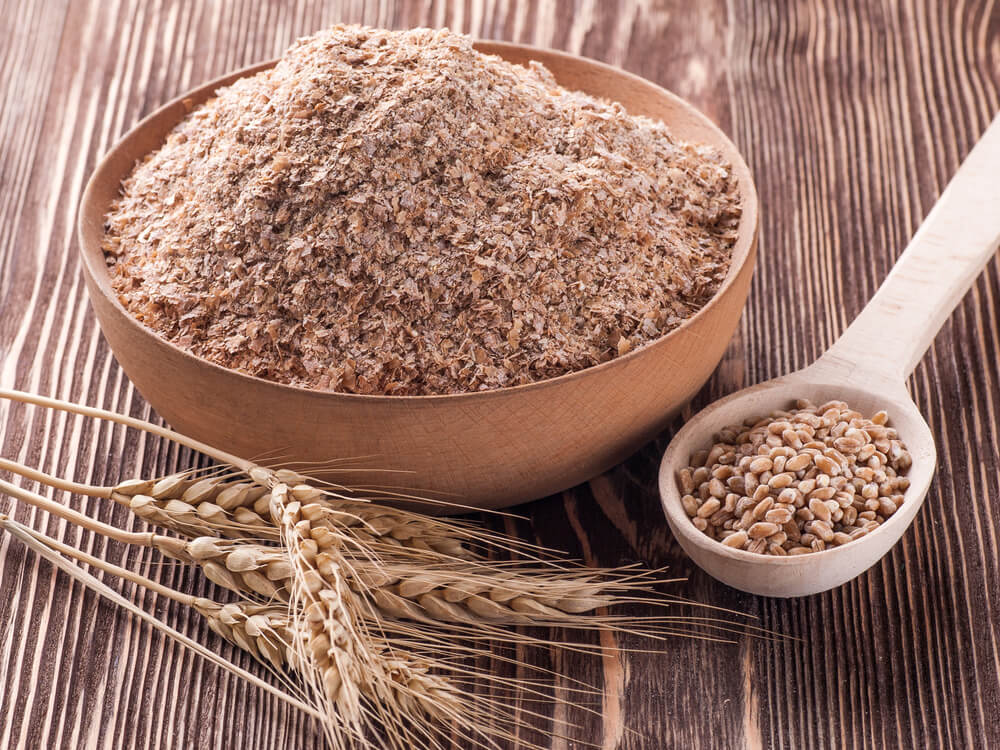
Wheat bran is the hard outer layer that has been stripped away from the wheat kernel. Like other healthy grain brains, it is nutrient-dense. One cup of wheat bran at least one-fifth of the recommended daily amounts of Vitamin B12, Vitamin D, magnesium, phosphorus, niacin, and riboflavin. That same cup also contains 7 g of fiber, or 28% of the recommended daily value.
Studies have shown that even short-term consumption — as little as two weeks — of breakfast cereals containing wheat bran improves digestive health better than a diet high in fruits, vegetables, or insoluble oat bran.
Wheat bran is extremely versatile. In addition to breakfast cereals, it can thicken stews and soups, be made into pancake or waffle batter, and be baked as muffins, rolls, and breads.
See Also: Oat Bran vs Wheat Bran
4. Flaxseed

Also called linseed, flaxseed has been consumed as a food or used as a medicine for thousands of years. A two-tablespoon serving of flaxseed 3 g, or 11%, of the recommended Daily Value of fiber. It is also a good source of iron and heart-healthy Omega-3 fatty acids.
There is also limited evidence that flaxseed may help reduce the risk of chronic health conditions such as diabetes, heart disease, and certain types of cancer.
Because seeds can pass through the digestive system without breaking down, ground flaxseed is considered to have more nutritional value than whole flaxseed. Because some people find the flavor of flaxseed to be unappealing, it is usually added to other foods in small amounts, rather than featured as the primary ingredient.
Just a tablespoon or two mixed with a batter, on a sandwich, or in a smoothie can provide you with the nutrients, fiber, and health benefits you expect from a bran-inclusive diet. But if you’re trading flax for oat bran, use the same measurements to keep your recipes consistent.
5. Oatmeal or Rolled Oats
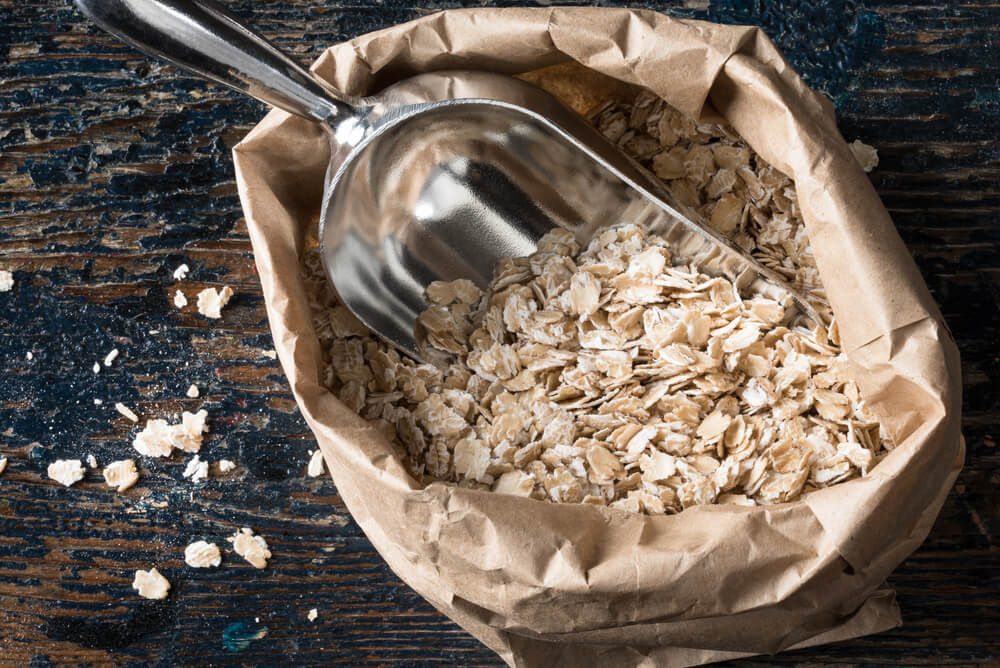
If you run out of oat bran, is oatmeal (or rolled oats) an acceptable substitute?
As it turns out, the answer is “Yes.”
For example, a one-cup serving of oatmeal is cholesterol-free, low-fat, and high in both protein and fiber. Dry oats are an excellent source of minerals such as thiamin, magnesium, copper, zinc, and iron. They also contain several powerful antioxidants, and studies suggest that regular consumption may reduce cholesterol levels.
The main difference between oatmeal and oat bran is that while oat bran is made of only the exterior of the oat groat, oatmeal contains every part of the grain, hence the name “whole oats”.
Although they can be used in many of the same ways as oat bran, there is a noticeable difference when using whole oats to make muffins. Whole-oat muffins tend to be heavier, denser, and wetter than those made with oat bran.
Why Might You Need To Substitute?
People who are health-conscious about their diet may look for oat bran substitutes due to boredom. After eating oat bran in hot porridge, as a cold cereal, in muffins, cookies, and breads, with yogurt, in smoothies, and even in meatloaf, it might become a bit too routine.
Even if you know it is good for your weight control and your heart health and your blood sugar levels, it starts to feel too much like a constant chore. You will naturally want to add some variety, or you will lose your motivation. But there are other reasons to find a sub for oat bran, too.
A Flavor Boost
Others who are new to oat bran-inclusive diet may find that they do not care for the taste. No matter how they try it and in what form, it just isn’t to their liking.
Some people are allergic to all forms of oats, so they are forced to look for other healthy grains. Similarly, some people with severe gluten allergies cannot eat oat bran. Although oat bran itself is gluten-free, if it was processed near other products that contain gluten, cross-contamination can be a real concern.
Empty Pantry Problems
Finally, sometimes it is just a temporary logistical problem — they have run out of oat bran, the store does not have any, and they do not want to disrupt their dietary regimen.
Luckily, several other healthy grain options can serve as good substitutes for oat bran. Here, we will take a closer look at those options, including the best ways to use them. Luckily, most options involve an even swap; you can use a one-to-one ratio for these subs, unless otherwise noted.
Final Thoughts
No matter the specific grain, a diet high in bran is one of the best ways to control your weight, lower your cholesterol, manage your blood sugar, and regulate your digestion, all while reducing your risk of chronic illnesses like diabetes and heart disease.
Here’s the thing — once you taste these substitutes for oat bran, you may want to include them in your diet from now on.
One of the best things about incorporating bran into your diet is that it is so easy. You can have wheat bran flakes for your breakfast cereal, an oat bran muffin for a snack, flaxseed in your smoothie, and a stew thickened with rice bran for dinner.
Oat, whole oat, corn, rice, or wheat — have fun experimenting with different kinds of bran and different recipes until you find your favorites.



